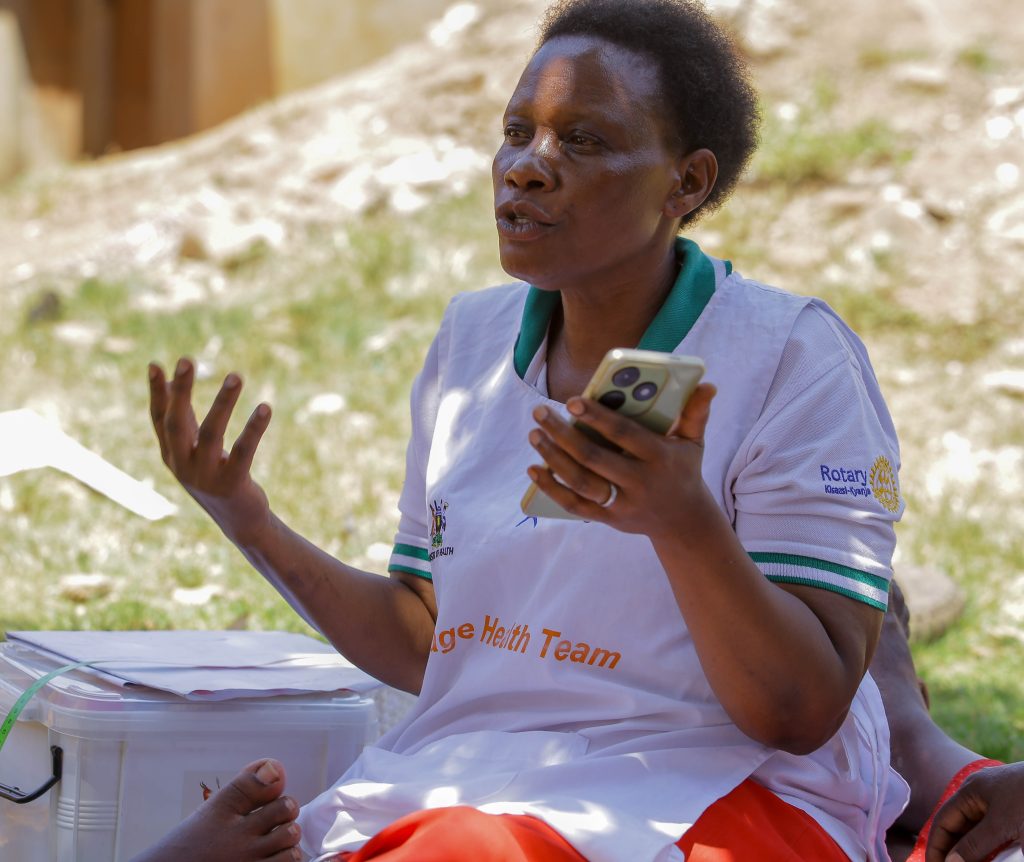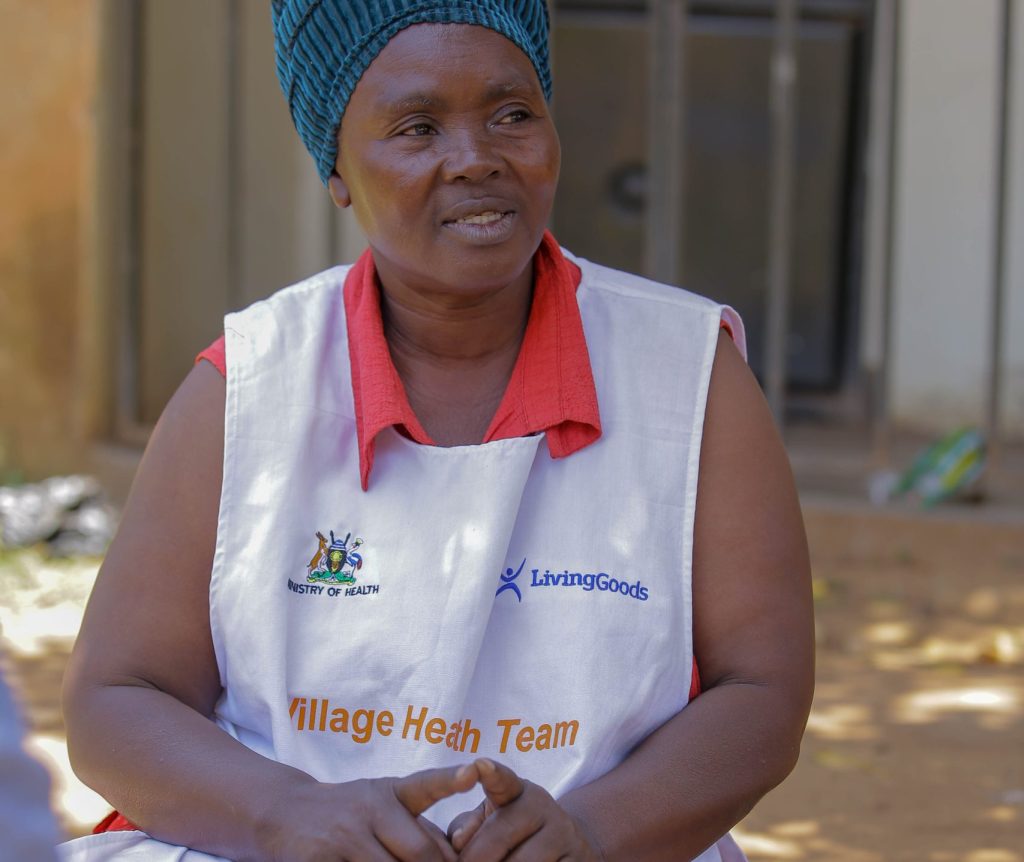Posted on: March 17, 2025
Nuru Sseruwagi, a 49-year-old Village Health Team (VHT) member from Kireka C, Uganda has spent over ten years transforming healthcare access in her community. Her journey began after witnessing the daily struggles women in her neighborhood faced when trying to access basic health services.

“In Kireka C, the people who need healthcare the most are single mothers, stay-at-home women, and children—individuals with no steady income,” Nuru explains. Before she became a VHT, residents often had to walk up to 10 kilometers or spend at least 20,000 UGX on transportation to reach a government health facility. Many simply gave up, leaving treatable illnesses to worsen.
When Nuru learned of an opportunity to serve as a community health worker, she stepped up, determined to bridge this gap. Supported by Living Goods, she began offering door-to-door health services, educating families about hygiene, immunization, family planning, and maternal health. Through her tireless efforts, she has reached over 1,000 households, saving families time and money while bringing essential care directly to their doorsteps.
However, Nuru notes that the absence of men in community health work has slowed progress. “Health is a family responsibility, and men need to be part of the conversation. Cultural norms often discourage men from seeking care, seeing it as a sign of weakness. This reluctance creates a ripple effect, influencing family health decisions, from maternal care to family planning,” she emphasizes.

Kisitu Dorothy (pictured), another VHT in Kireka C, shares Nuru’s concern. “If we had more male health workers, they could talk to fellow men directly and change attitudes. Right now, most health workers are women, and some men avoid interacting with them,” Dorothy explains.
Every week, Nuru visits the local health center to help community members navigate the system. Her presence has built trust, but without male champions, she says male participation remains low.
Nuru’s story is a testament to the power of community-driven healthcare. Her dedication has not only improved access to essential services but also highlighted the need for inclusive health education and participation. By addressing cultural barriers and encouraging male involvement, Nuru believes her community can achieve even greater health outcomes.
